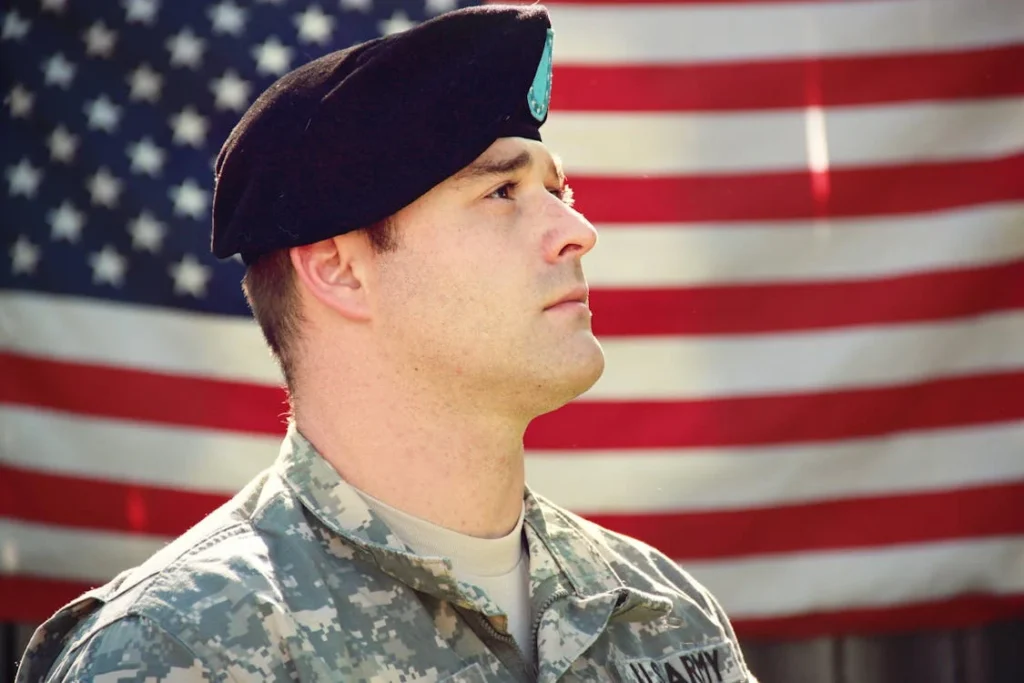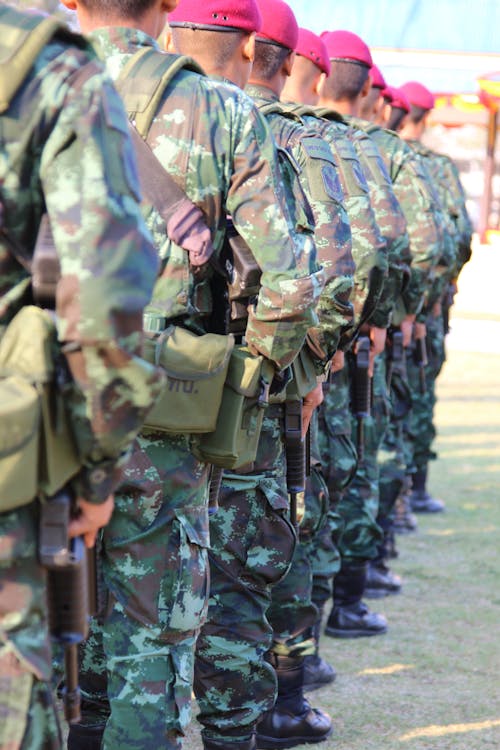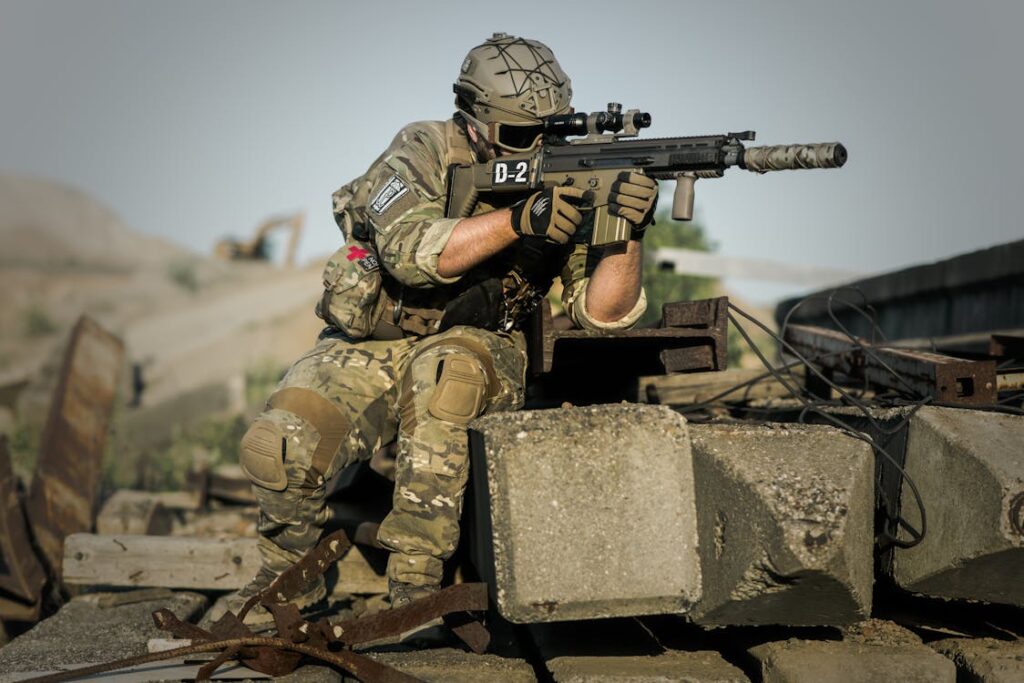Armed force families have to make a lot of sacrifices. Their life is a unique and challenging journey full of twists and turns. Although the courageous men and women serving in the armed services receive much attention, the families who support them unwaveringly deserve to be acknowledged and honored. This piece will examine the significant influence that military families have while highlighting inspiring tales of resiliency, selflessness, and steadfast support.
Table of Contents
The Backbone of Our Heroes

Armed force families are the hidden heroes who unwaveringly support their loved ones in uniform. These families are characterized by their shared sense of national responsibility, perseverance, and flexibility. Their influence is incalculable.
The Spouse’s Sacrifice
For spouses of military personnel, life is a never-ending cycle of change. They encounter frequent moves and deployments and do not know if a loved one is safe. A spouse in the military makes an immense sacrifice. They voluntarily endure separations lasting for months or even years, putting their jobs and goals on hold. There may be a significant emotional cost.
Consider the case of Sarah, a military spouse of more than ten years. Due to her husband’s deployment, she has had to raise their children, run the family alone, and occasionally juggle a career. She continues, “Every time he’s away, I wear two hats — mom and dad,” her tenacity is evident. Although it’s difficult, I understand that he is serving his nation, and it’s a
Children of Armed Force Members

Children of armed forces endure particular difficulties. They may have to adjust to new schools and neighborhoods regularly if they move frequently, which may mean leaving behind friends and familiar surroundings. They always worry that their parents could have to go for a deployment.
Teenage Sophia, raised in a military household, states that life isn’t always straightforward. Bidding farewell to friends always becomes more challenging. However, I’ve also discovered how to create new pals swiftly. I’m happy for my mother. We know she provides for our family while Dad is abroad because she is a strong woman.
Resilience in the Face of Deployment
One of the most challenging times for military families is deployment. Emotional health may suffer significantly from the distance and uncertainty. Being apart from family can be difficult for military personnel as well.
Staff Sergeant James’s narrative is one of great significance. His wife Emily and their minor children suffered greatly as a result of his deployment to a conflict zone. Emily’s ability to bounce back and keep things feeling normal for the family was proof of the fantastic strength that military spouses have.
“I had to be strong for the kids every single day,” explains Emily. “We would assure Dad that everything was alright by sending him photos and videos.” Though difficult, I understood that was my responsibility throughout his deployment.
Injury and Recovery
When a service member is hurt while performing their duty, many military families must manage the challenging road to recovery. The family’s fortitude may be tested during the protracted and emotionally taxing process.
Meet the Anderson family, whose son, Private Michael Anderson, had injuries during his military service that changed his life. Their narrative is a moving illustration of the importance of familial support. Lisa, Michael’s mother, committed to assisting her son regain his freedom. “I’d do anything for my boy,” she declares. I’ve had to take on the roles of his caregiver, therapist, and advocate. Our family has come together in support of him. We work together as a team.
Community Support
This is not a route that military families take alone. Support from many communities, organizations, and other military families is invaluable. Strong bonds between them enable them to form a network that supports them as they overcome the particular difficulties they encounter.
As an engaged military community member and spouse of a service member, Megan says, “The military family community is unlike any other.” We encourage one another throughout deployments, rejoice in one other’s return, and assist one another with day-to-day difficulties like relocating to a new duty station and finding housing. It resembles a large family.
Maintaining Mental Health
A vital component of the well-being of military families is mental health. Their mental health may suffer as a result of the various pressures they encounter, such as deployments and a nomadic lifestyle. Asking for assistance is a crucial component of resilience.
Thankfully, there is more attention being paid to providing military families with mental health care. Peer support groups, counseling services, and telehealth have all improved mental health among military personnel.
Educational Opportunities

Despite the particular difficulties they encounter, military families have educational possibilities available. Children with military ties can receive a top-notch education from schools run by the Department of Defense Education Activity (DoDEA), which operates worldwide. Military grants and scholarships also help with the cost of higher education.
Resilience Through Generations
Military families affect more than just one generation. Their tenacity, morals, and sense of nationalism are frequently inherited. The dedication of armed force families can have a profound impact on their offspring.
The Impact of Military Service on Family Dynamics
- Service in armed forces can significantly affect family dynamics, affecting roles, routines, and relationships within the family. Due to the distinct demands and challenges of military life, adaptability and resilience are required, which can result in positive and negative changes in family dynamics.
- One of the most significant effects of military duty on family dynamics is the change in duties and responsibilities during deployments. The surviving spouse frequently needs to assume the roles and obligations of both parents while a service member is overseas. As they balance employment, child care, housework, and other commitments, this may cause them to experience more stress and pressure. Additionally, children could have to take on more duties, affecting their academic performance and emotional health.
- Military duty can also affect family interactions emotionally. Family members’ ongoing concerns for their safety while they are gone might result in chronic tension and anxiety. This may impact the family’s emotional atmosphere and raise stress and conflict. Furthermore, the psychological effects of frequent deployments can cause feelings of alienation and distancing, which can disrupt ties within the family.
- However, military service can increase resiliency and solidify family ties. Families tend to unite when faced with hardship, offering one another emotional support through trying times. The shared experience of negotiating the pressures of military life can foster a strong sense of unity and cohesion within the family.
- However, returning from the military to everyday life can sometimes throw family dynamics into a loop. Readjustment difficulties among veterans may impact their relationships with spouses and kids. Their duty may also cause them to struggle with health problems, either physical or mental, which can worsen family dynamics. It is essential to recognize these obstacles and the resources available to these families to assist them in effectively navigating their post-service lives.
Supportive Services for Veteran Families

Military service is complicated and variedly affects family dynamics. It offers formidable obstacles as well as chances for development and fortitude. Armed force families must have access to services and support to manage these adjustments and preserve positive family dynamics.





